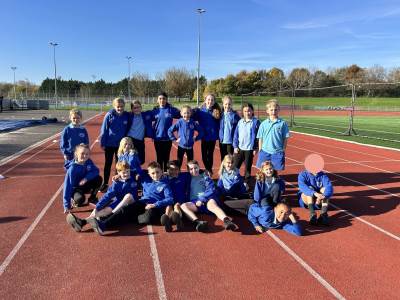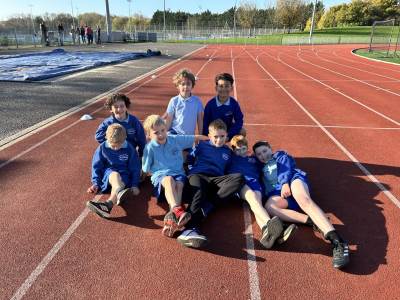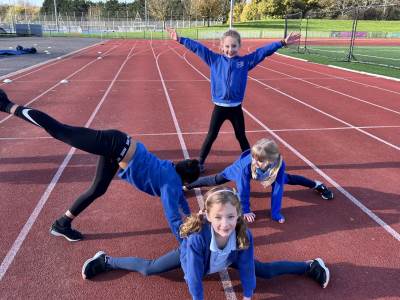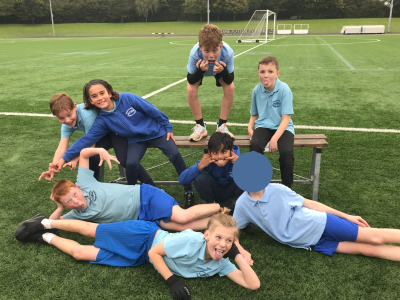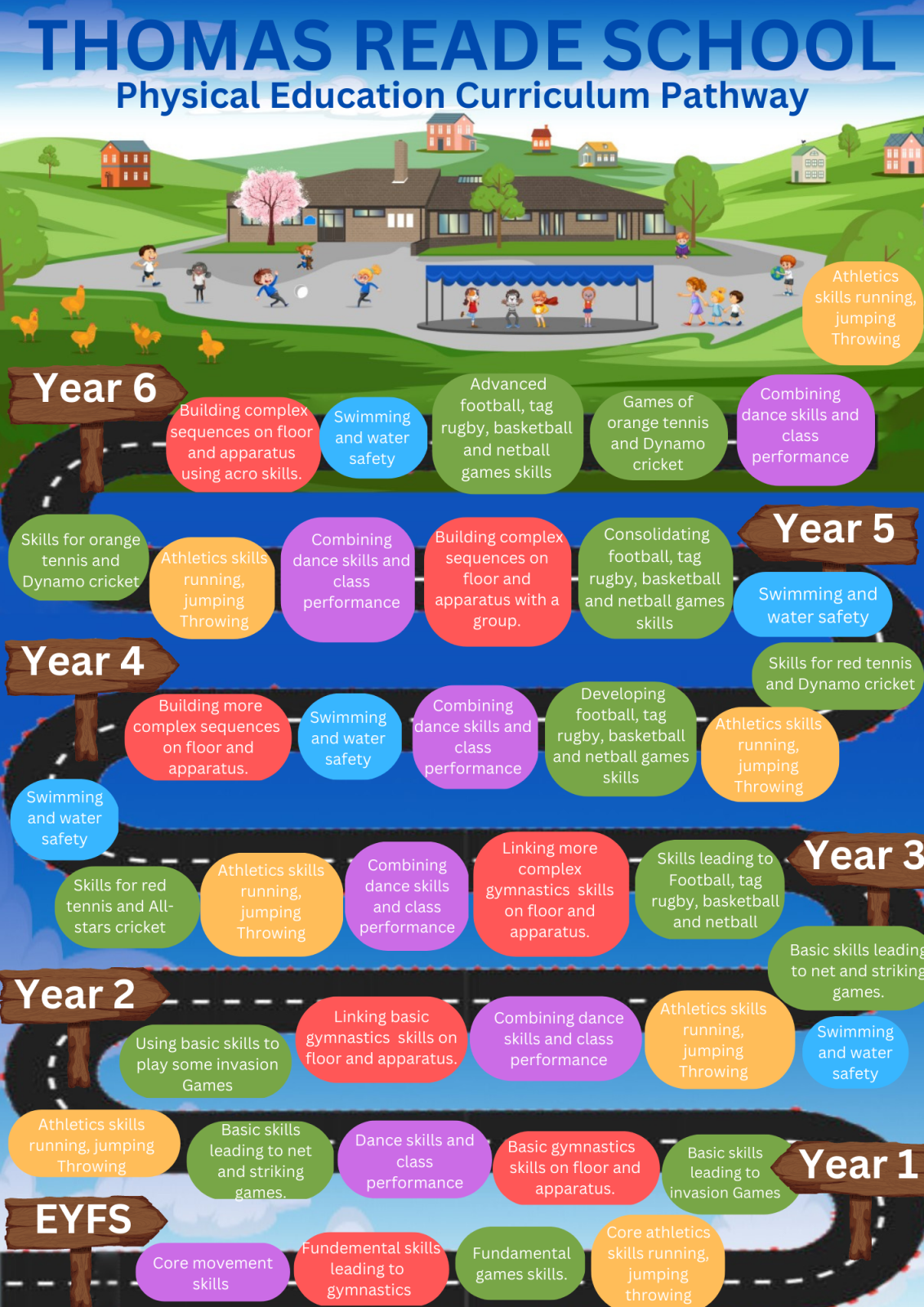Physical Education

VISION
At Thomas Reade Primary School we strongly believe that all children should have access to a thoroughly planned, sequential programme of physical activity, focusing on learning how, understanding why and knowing when to move. Physical Education is unique in it's contribution to the totality of education, contributing to the development of a wide range of physical competences, social, and personal skills, including encouraging healthy competition and teamwork whilst helping to prepare all pupils for a healthy active lifestyle.
Throughout their time at Thomas Reade children are taught Physical Education by a specialist teacher who strives to equip all children with the necessary skills, knowledge and range of physical experiences to motivate them to lead lifelong active, healthy lifestyles in which they continue their participation in physical activity and sport.
Our physical education curriculum is the learning and experience the subject provides for our children both in curricular and non-curricular time. The physical education curriculum is carefully planned to include a range of indoor and outdoor based lessons throughout the year and provides a varied and progressive learning programme. It builds on children’s natural need for, and enjoyment of, activity and movement. Appropriate provision is in place to support a range of learning needs and abilities and ensure positive outcomes for all children. Through the medium of physical education pupils can acquire and develop the knowledge, concept, skills, qualities, values, and attitudes listed below:
Skills: Motor skills both generic and sport specific, social skills, problem solving, decision making, choreographic skills, officiating, observational, recording, organisational, co-operation, movement memory.
Knowledge: Rules and regulations, sport history, cultural influences, health and fitness, (including basic anatomy, physiology) safety principles, regulations.
Concepts: Spatial, awareness tactical, (including defense and attack), team work, healthy lifestyle, artistic expression, motif development.
Attitudes and Values: Fair play, honesty, respect, responsibility, co-operation, tolerance, passion, courage, determination, confidence.
INTENT
In KS1, the focus of the PE curriculum is on the development of the fundamental skills that will be built upon in KS2 when they are applied in specific sports. The intention is to develop a lifelong love of physical activity, sport and PE in all young people. We aim to help ensure a positive and healthy physical and mental outlook in the future and help young people to develop essential skills like leadership and teamwork. Within each lesson, we strive to give every child the opportunity to develop skills in PE, consider the impact on their health and fitness, compete/perform and evaluate. These elements are identified both in lesson plans and on progression maps, selection and sequencing of content is designed to physically educate all pupils so that they know more and can do more. All lessons are differentiated through input, outcome or by use of different equipment to help ensure that learning is as tailored and inclusive as possible.
Our aim is that children:
- Develop competence to excel in a broad range of physical activities
- Are physically active for sustained periods of time
- Engage in competitive and cooperative sports and activities
- Understand how to lead healthy and active lives.
IMPLEMENTATION
Progression is planned using the three strands of fundamental movement skills: motor competence, rules strategies and tactics and health participation
Fundamental movement skills are a set of basic learned motor patterns that do not occur naturally. Learners need high-quality instruction, practice and feedback to progress from inefficient to more proficient and mature patterns of movement. These three strands are not disconnected ideas but need to align linking the learning of skills with how to use the skills to develop competence in a activity.
- -Motor competence – locomotor skills -running jumping , Stability skills – twisting and balancing, manipulation skills – throwing and catching
- -Rules, strategies and tactics – requiring pupils to move in accordance with the demands of the activity – eg knowledge of rules in a game, or understanding of tactics – when where and how to move. This can be seen as composition in dance and gymnastics activities.
- -Healthy participation -Connection of ideas relating health to physical activity this includes: preparation for safe activity and fitness demands to ensure effective participation and how this contributes to a healthy lifestyle.
Our progression maps demonstrate how these movement skills are built up as children move up the school, it includes the development of rules and strategies and healthy participation. Both as generic areas that run across all activities and where these activities are incorporated into units of work.
IMPACT
We help motivate children to participate in a variety of sports through quality teaching and differentiated and planned progression. Lessons aim to be engaging and fun, equipping our children to develop motor competence, demonstrate an understanding of rules, tactics and strategies and take responsibility for their own health and fitness. We hope our children will grow up to live happy and healthy lives utilising the skills and knowledge acquired through PE. We link our physical health with our mental health and use this to encourage growth mind sets and well-being. All children in KS2 have two hours of high-quality PE lessons, led by a specialist PE teacher, key stage 1 have an average of 1.5 hours and reception work with our specialist PE teacher once a week, as well as experiencing their own physical development programme as part of their learning through play.
All our children take part in a class performance each year, combining dance performances with music and drama. Year 4 children take part in our outdoor learning programme and year 6 take part in outdoor and adventurous activities at their week long residential visit. Children swim in years 2-6 focusing not only on development of strokes and distance swimming but also water safety. We aim that children leave us being able to swim 25m competently
All of our children have a chance to experience competitive sports, through intra-school competitions using our house system (including a whole school sports day) and many will enjoy representing the school at inter-school competitions. We aim that all children in year 4 and 6 get a chance to attend a partnership athletics event. As a school we attend many partnership events and our sports teams regularly experience success at these competitions.
We provide a range of extra-curricular clubs which where possible are provided free of charge. Attendance registers are kept, and targeted children encouraged to attend.
Our impact is measured by:
- -Monitoring of the curriculum which takes place through our internal tracking at three points in the year, children who are not meeting age related expectations are supported in lessons to learn more and do more.
- -Lesson observation and pupil voice also contribute to the measurement of impact.
- -Lesson evaluations including next steps and updates to medium and long term planning.
- -Regular chances for children to set their own targets in athletics activities and improve on their own performance, this is recorded and new targets set.
- -Monitoring of participation levels, and discussion with parents if needed.
- -Achievement of sports mark, previously Platinum and currently Gold, demonstrating the commitment we as a school give to PE and sport. The data gathered for this includes our active playgrounds and inclusive health check.
- -Monitoring attendance at extra-curricular clubs.
- -Monitoring participation at external events.
- -Swimming performance monitored using external assessments to determine those who have achieved the end of KS2 requirement (able to swim 25 metres, demonstrate self-save rescue and water safety.)
Outcomes from our monitoring form a basis for the coming years action plans, PE premium spend and evaluation of impact.
PE Kit
It is essential for all children to wear appropriate clothing for physical education. Children require a blue school polo-shirt, royal blue shorts and trainers. The polo shirt for P.E. may be purchased from the school shop in the link above. Royal blue shorts can be purchased from the uniform supplier or be plain royal blue sports shorts from any supplier.
Since Covid-19 children have been able to come to school in their PE kit on PE days, this has been continued following the end of Covid restrictions to maximise participation time in PE lessons. Children may wear plain tracksuit trousers, joggers or leggings in navy blue, royal blue, black or dark grey instead of shorts during cold weather.
A royal blue sports hoodie with school logo is available for purchase from our uniform supplier, this is optional and can be worn on PE days only. Alternatively, children can wear a school jumper with their PE kit.
PE Days
Year 1 - Tuesday Friday
Year 2 - Thursday
Year 3 - Monday and Wednesday
Year 4 - Tuesday and Thursday
Year 5 - Monday and Wednesday
Year 6 - Tuesday and Friday
PE Curriculum
PE Documents
- Athletics progression
- Dance progression
- Games progression
- Generic skills progression
- Gymnastics progression
- Outdoor and Adventurous Activities progression
- PE Curriculum pathway
- PE Long Term plans -overview
- PE Policy 21
- Sportsday timetable for parents 2024
- Sportsday timetable for parents 2024
- Swimming progression
- Vision Intent Implementation and Impact


